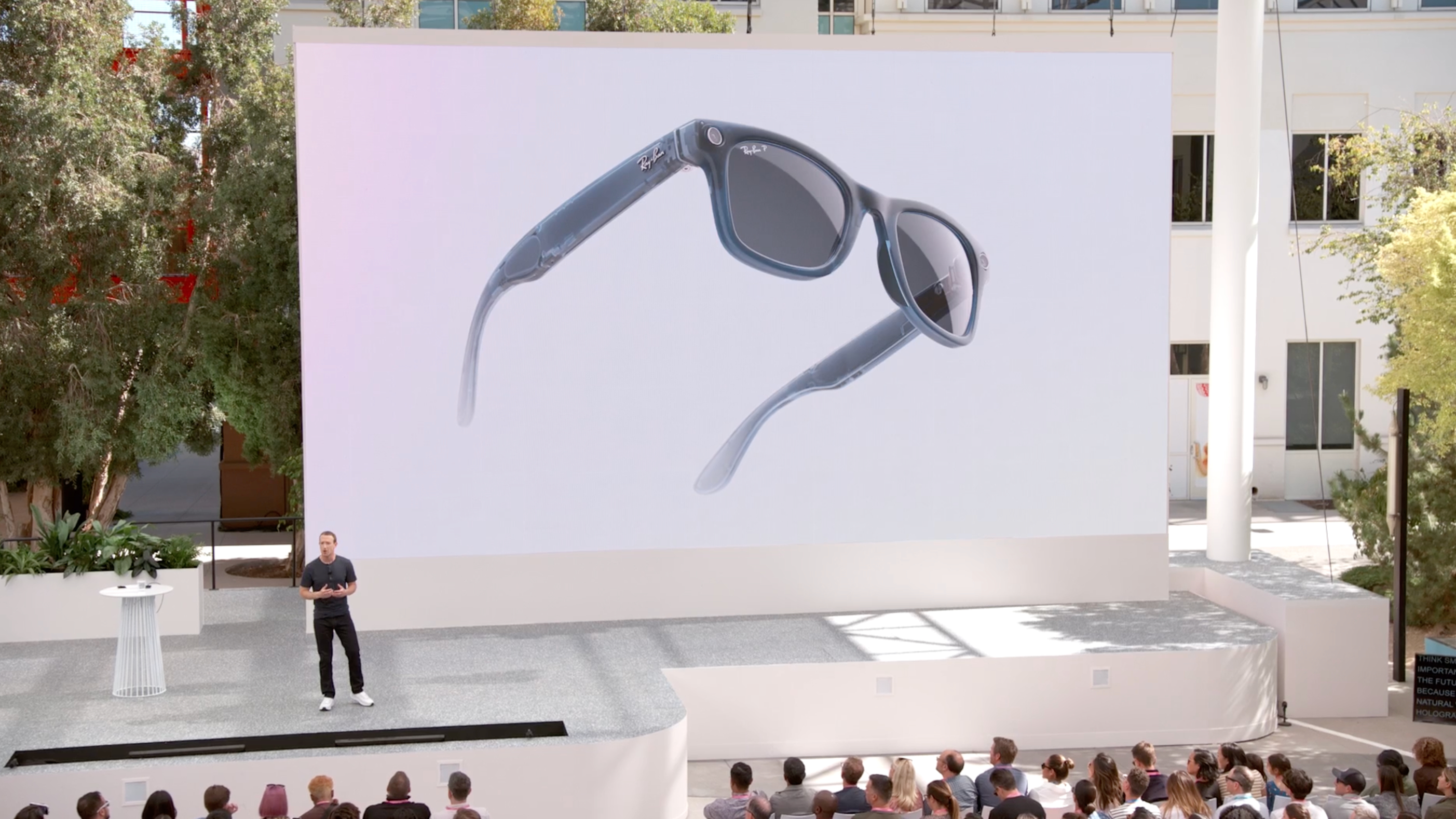How much more data can Meta collect? Probably a lot, thanks to the Meta Quest 3 and Ray-Ban smart glasses
What could this mean for internet and real-life privacy?

Sign up for breaking news, reviews, opinion, top tech deals, and more.
You are now subscribed
Your newsletter sign-up was successful
Meta went live with its special presentation, Meta Connect 2023, and it certainly garnered a lot of attention with its wide range of gadgets and AI tools. The Meta Quest 3, Ray-Ban smart glasses, and celebrity AI assistants were the highlights, with the impressive showcase demonstrating all the cool things you can do with each one.
While we can and should celebrate technological advancements that continue to push forward the industry, it’s also vital to look more carefully at what these advancements mean for consumers and what they may be sacrificing in the long run. And one of the biggest long-term issues with the tech industry, especially social media-based websites and apps is data collection.
Data collection is an extremely lucrative industry, especially when combined with ad revenue, as the former is what aggregates all that precious data in handy profiles that are sold at a premium to third-party advertisers. This means that creating new and inventive ways to obtain data is often the goal of these corporate-run social media sites in order to keep the cash flowing. Now guess what Meta has just done today?
I’ll start with the Meta Quest 3, the third entry in the now Meta-owned VR headset series. The major new feature is a cool one that applies AR to your living space in order to create special effects, like portals to the Upside Down World in the Stranger Things game. However, consider this: Meta needs to scan your living space to project VR effects onto it, and what do you think happens with all those images it scanned and then stored in its database?

Next up is the Ray-Ban smart glasses with built-in Meta AI, which lets you take pictures, videos, and even live stream through the glasses' lens. The presentation segment shows off a pretty fun video of a celebrity as he goes around in his car, exercising, and then go-cart racing, switching between third and first-person views.
Putting aside the moral implications of being able to record anyone both indoors and outdoors without their consent, that is a host of visual location data that the Meta AI can collect. And that’s both through the live streams you post to Facebook as well as any of the other videos and photos you take through the smart glasses.
Finally, we have Meta's AI personas that are based on various celebrities and are meant to cater to a wide variety of needs you might have. For instance, Viktor is a fitness expert who can give you customized workouts, and there's a Snoop Dogg Dungeon Master that will take you on a text-based adventure game.
Sign up for breaking news, reviews, opinion, top tech deals, and more.
In a perfect world, these would simply be tools to aid those who need extra assistance, but that is not it. It’s much more realistic to think of what Meta can do with all that data you’re literally feeding these AI chatbots, which are tailor-made to aggregate as much information from you on as many different topics and interests as possible.
I’m not trying to spoil anyone’s fun, but we have to think critically about what kind of information about our everyday lives we’re willing – and unwilling – to give up to these corporations. Even after they've dressed them up as fun games, AI chats, and cool fashion.
You might also like

Named by the CTA as a CES 2023 Media Trailblazer, Allisa is a Computing Staff Writer who covers breaking news and rumors in the computing industry, as well as reviews, hands-on previews, featured articles, and the latest deals and trends. In her spare time you can find her chatting it up on her two podcasts, Megaten Marathon and Combo Chain, as well as playing any JRPGs she can get her hands on.